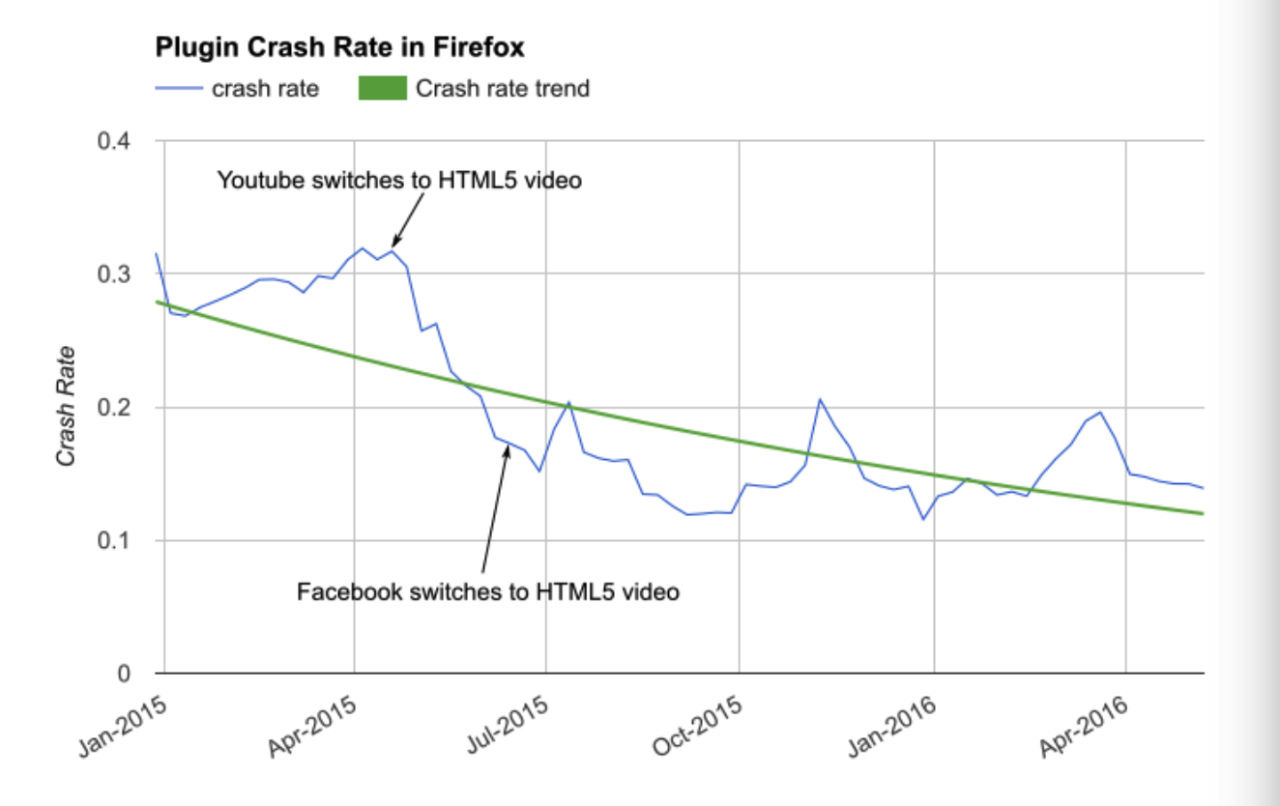Blocking unnecessary Flash content loading in the Firefox browser will lead to improved battery life, faster web page loads, and greater user security, according to developer Mozilla. And the block starting in August is only the beginning.
The partial Flash block, scheduled for the Firefox update on August 2, will be applied to content that users cannot see, like so-called "supercookies" planted by ISPs and similar entities for user tracking. Initially, the Mozilla blog post announcing the block notes that plugins that are on the Firefox block list all have functionality that can be duplicated in HTML 5.
Later in the year, Mozilla will also further block Flash plugins intended to measure advertising effectiveness, beyond just supercookies. Mozilla will roll out a new HTML 5 API at that time for website coders to duplicate the features of the Flash plugin that will be blocked from loading.
Starting in 2017, Firefox users will have to approve any Flash content loading, regardless of source. Mozilla recommends that websites that rely on Flash or Silverlight for media presentation or games adopt HTML 5 alternatives to Flash as soon as possible.
Mozilla works with Adobe to secure and improve Flash, and has for some time. However, in the blog post outlining the timeline for blocks, the company claims that "Plug-ins often introduce stability, performance, and security issues for browsers" adding that "this is not a trade-off users should have to accept."
As Adobe updates its Flash plugin, or as security issues are discovered with the plugin, Apple deprecates the old ones, and remotely disables them from working in Safari. Additionally, Safari version 6.1 and newer has security settings that can be configured by the user to always allow, completely block, or ask the user if a specific website is allowed to execute Flash content.
 Mike Wuerthele
Mike Wuerthele








 Charles Martin
Charles Martin

 Wesley Hilliard
Wesley Hilliard
 Stephen Silver
Stephen Silver
 William Gallagher
William Gallagher

 Marko Zivkovic
Marko Zivkovic
 Andrew Orr
Andrew Orr









9 Comments
Welcome move
I get really tired of being told at least once a week that the Flash plug-in is outdated, blocked and needs to be updated. You suck, Adobe.
As for supercookies, that's one reason I use Firefox as my main browser and installed Privacy Badger and Self-Destructing Cookies. Chrome just doesn't give me as much control or as many options. (BTW, I like Privacy Badger over Adblock Plus, which I've abandoned, because now I can allow ads so sites like AI can get ad revenue, but I still block cookies.)
Get rid of obnoxious Adobe Flash. HTML5 is much better.